#historical role play
Explore tagged Tumblr posts
Text
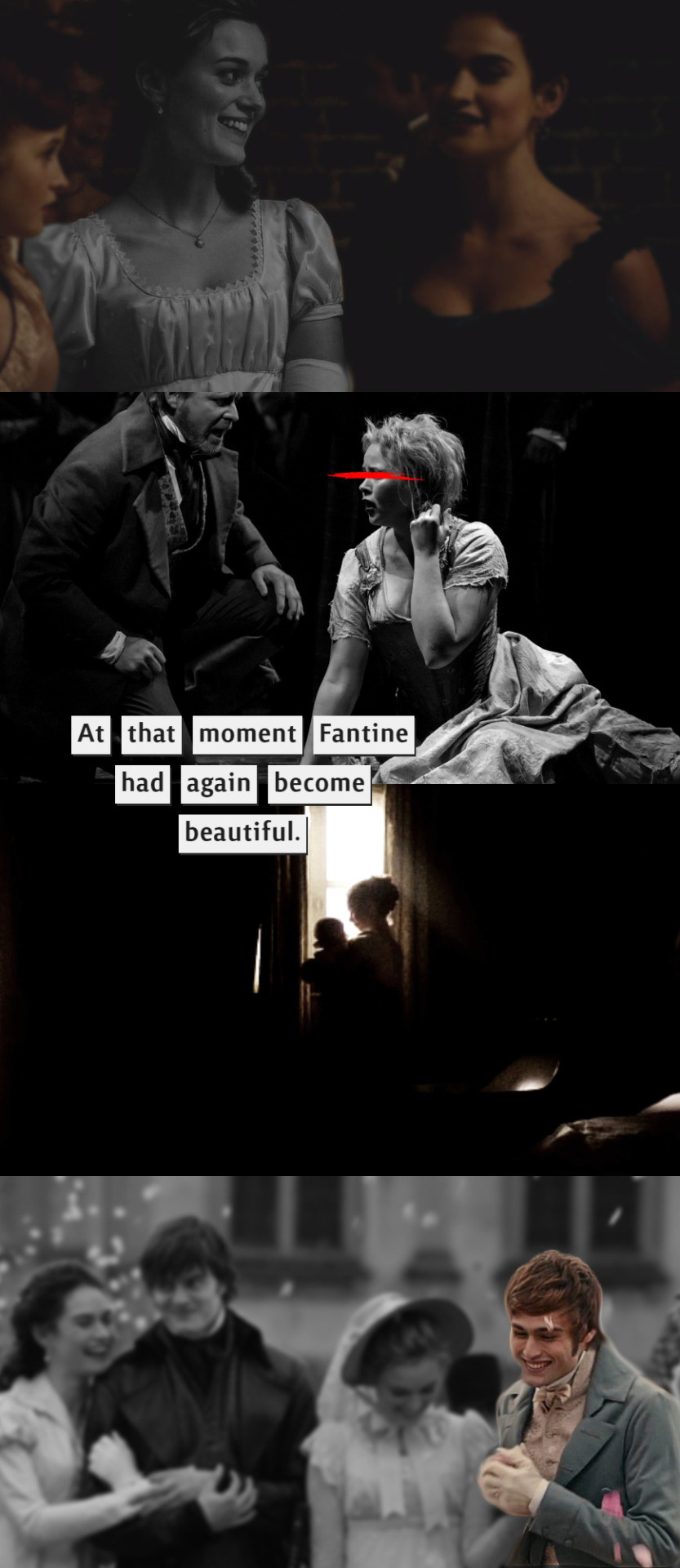
Great grief is a divine and terrible radiance which transfigures the wretched. At that moment Fantine had again become beautiful.
#ooc#self promo#self promo for ts#les mis rp#historical rp#indie rp#historical role play#les mis role play#indie role play
0 notes
Text
hey did y'all know that fiyero is currently being played by a man of colour on the west end (ryan reid), the north american tour (xavier mckinnon), AND the uk tour (carl man)? broadway, STEP UP YOUR GAME!
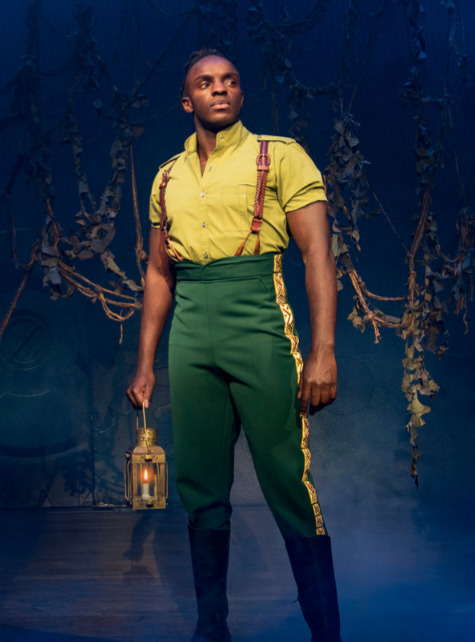
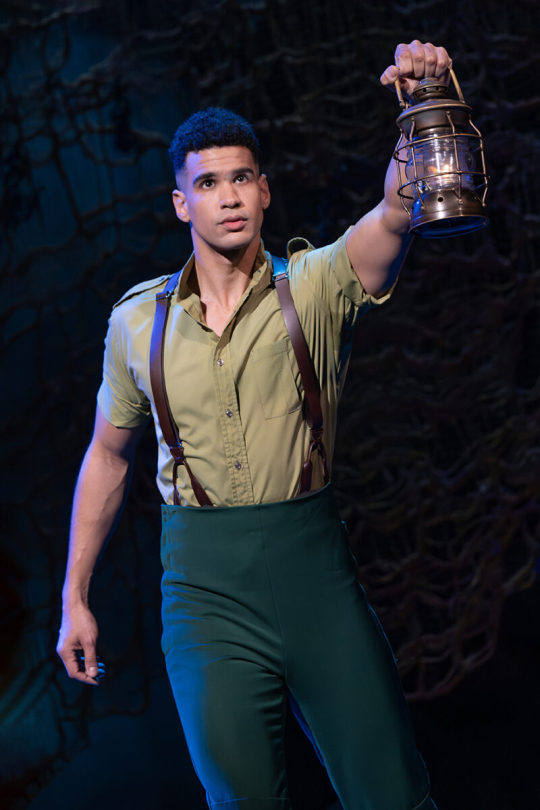
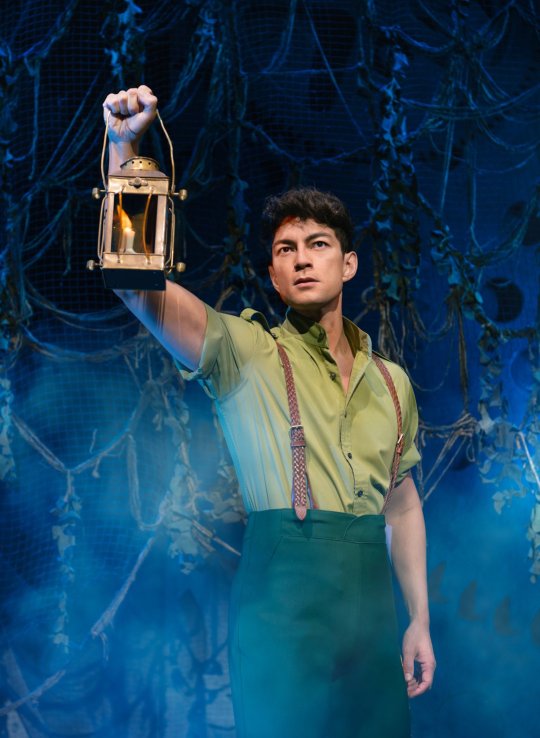
#wicked#wicked the musical#fiyero#fiyero tigelaar#fiyero tiggular#ryan reid#xavier mckinnon#carl man#btw fiyero is a dark skinned man as per the books and should be portrayed as such in adaptations#so while xaiver and carl are still not accurate sigh#i do think it's a step forward to see the role going to more moc when its historically been played by white actors like 9 times out of 10#i believe christian thompson (NA tour fiyero from 2023 to early 2024) was also on when ryan and carl were principal fiyeros#c.txt#POC rep!#also these pics dnjakfs if there's one thing fiyero's gonna do it's hold that damn lantern!
443 notes
·
View notes
Text
Something something abt how a clown’s whole thing is to make themselves the butt of the joke and take everything thrown at them while a jester’s whole thing is to freely call out & ridicule the king however they choose something something…
#helluva boss#helluva boss spoilers#helluva boss fizzarolli#fizzarolli#random snippets of my day#just saw the new ep HELL YEAH#like even if it is a coincidence#cause they keep referring to mammon as a clown when he’s dressed like a jester#and refer to fizz as a clown and a jester interchangeably#I still think it’s neat#fizz has been playing the clown for mammon for so long#even though he’s a jester#and now he’s gotten to play the historical roots of that role in a way
2K notes
·
View notes
Text
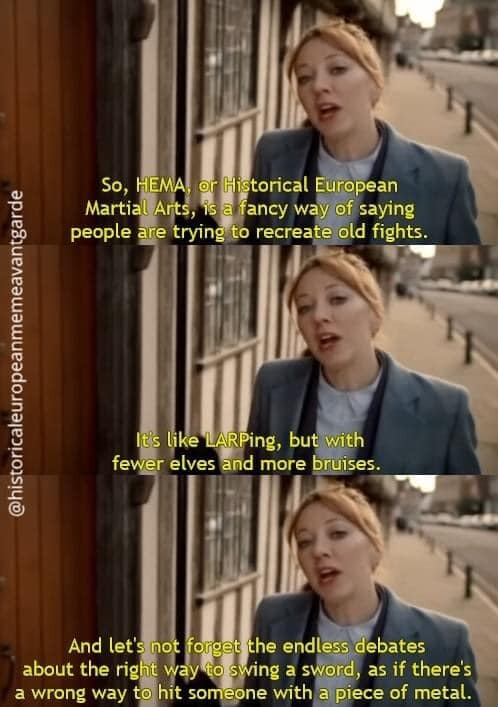
#Kult of Athena#KultOfAthena#Meme Monday#HEMA#Historical European Martial Arts#LARP#Live Action Role Play#sword#swords#sword fighting
755 notes
·
View notes
Text
again so sorry im still on gladiator 2 but i cant stop thinking abt it (derogatory). it shows exactly the type of surface level "progress" we made in the last 2 decades. literally gladiator but "woke" as conservatives think of it bc that racial diversity n inclusion of lgbt characters is entirely surface level n covers up existing racism, eurocebtrism n homophobia.
they try to show rome as a brutal imperialist force spanning 3 continents for exactly 10 minutes, and then forget about it. no more discussion of imperialism and its consequences on both colonized ppl n colonizers. the message is 'rome is an empire built upon the blood of enslaved n colonized ppl. it could b good tho. it could b a REPUBLIC built upon the blood of enslaved n colonized ppl #progress'.
they were characters who were explicitly mentioned to enjoy n seek out gay sex, but these characters were either not shown or the villains. the brothers were rly effeminate as well to show how theyre morally corrupt, as one does when they try to present men as decadent, corrupt and morally reprehensible.
not to mention the whitewashing of the brothers. he tried to push as many poc into the plot as he could but whitewashed the two emperors that were arab irl. insane. all the main characters of color in the movie, esp the ones played by black actors, were either currently or formerly enslaved. he tried to be as "inclusive" as he could, but failed to imagine a past in europe where the emperor is arab and black ppl r anything but enslaved? even tho that past did exist? what kind of progress is that?
#like bar said that movie felt more like the avatar (blue ppl) movie than the original gladiator movie#slavery ment#also like. idk how to call it bc its not whitewashing. however.#denzel washington slayed so hard as macrinus but like. macrinus was amazigh. irl. it wouldve been so cool if they got an actual amazigh-#-actor. u know. ppl whose stories r ever so rarely told esp outside north africa or euro maghrebi communities.#idk i think casting one of the most famous actors in the world who is not amazigh instead of an amazigh actor for this role was a miss#which casting him n changing that character was also crazy racially speaking bc they literally made up the historical figure was#enslaved. they literally made up a character was enslaved n then had him played by a black actor. insane#mine*#blorbo from my degree....
55 notes
·
View notes
Text

Sarah Bernhardt playing the lead role in Edmond Rostand's play of l'Aiglon, about the life of Napoleon II. Rostand had written L'Aiglon specifically for Bernhardt, and it became one of her signature roles.
French vintage postcard
#l'aiglon#briefkaart#role#photography#vintage#sarah bernhardt#bernhardt#lead#tarjeta#play#postkaart#french#postal#napoleon#edmond#napoleon ii#photo#playing#postcard#historic#roles#carte postale#edmond rostand's#life#rostand#written#ephemera#signature#sarah#sepia
58 notes
·
View notes
Text
New-ish post, kinda posting this on different platforms and getting a general vibe check for some ideas I have. But basically this Halloween I want to actually do something for the TTRPG and Actualplay world (oh yeah I’m into those kinds of things). I want to try and get both players, GMs, and casual viewers alike something fun to look forward to this especially spooky season. I’ll probably talk a little more when we get closer to the actual season of scare-giving but just know that if you’re interested I’m still looking for people to join in!!
As my team and I’d first debut we’re going to try and do a two to four session actual play, which will probably be released in the weeks leading up to Halloween. We’ve had a couple good friend way in on the matter of “setting” but now I come to you fine folk. Mind you this is a horror campaign/arc so if…

Isn’t your thing, keep on a moving.
But without further ado here are a couple of the possible settings for our players, and myself, this coming espookee season…
1.) Somewhere off the coast of Florida, 1926 end of the first major housing boom in the state, a small island which calls back to the Spanish Empire, is Isla Boñyela, a small port made tourist location during the boom of disposable wealth in 1920s America. A small group of friends from the northeast tag along down for the perfect paradise vacation. Only to discover the island is much much older than anyone could have ever assumed. Whilst dealing with upstart gangsters, unnerving US soldiers, and the terrified locals they find something older than even undead conquistadors.
While I don’t have a working title, this is an old project in the running which I’ve had a few attempts at revamping over time. Its previous title was “perfect paradise vacation,��� and runs on the Call of Cthulhu 7th Edition game. Anywho it’s a blast of fun with Caribbean lore, tone of anti-imperialism, and something dark lurking beneath the waves.


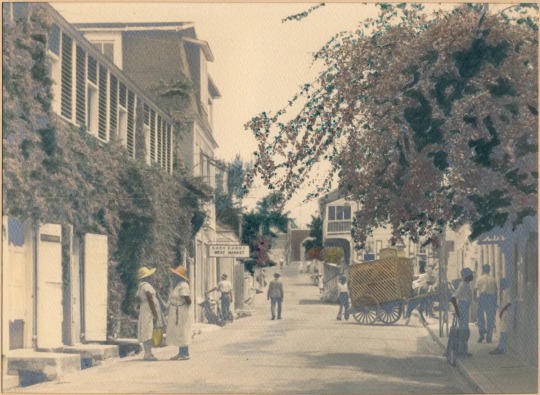
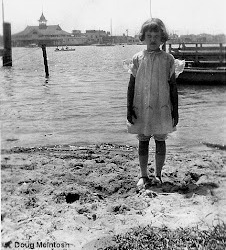
2.) 1950’s America, the nonexistent state of Mid-Atlantia (DMV coded) in a small suburban neighborhood where nothing goes wrong… it’s almost “All-Hallows-Eve” and little Johnny and Susie want nothing more than to trick or treat this year with all the big kids, Dad’s finally getting the big promotion at work, and Mom just got a new waffle iron! Sure everything is neat here in America. Heck you just got new neighbors! Newlyweds in fact from somewhere big and fancy, they sure aren’t like any of us in our simple town. But… and you can’t say exactly why but things are different. Or perhaps they’re all too the same? Everyday a repeat of ever other bland day that followed you over and over and over and over… and you could swear, while no one may listen to you there’s someone out there. Stalking you from outside your own home- or- perhaps, he’s just your friendly new neighbor welcoming you… to the end.
Ahhhhhh! I’ve also been working on this one for a sec and god writing it out does excite me. This is also a Call of Cthulhu game but modified/homebrewed to have a uniquely 1950s horror feel. This is definitely one of the more unique games I’ve written and am truly interested in seeing where it goes (even if we don’t choose it). This is for those who feel like isolation, fear of the unknown, fear from within, and liminal space horror comes best into play! So whadya say neighbor?
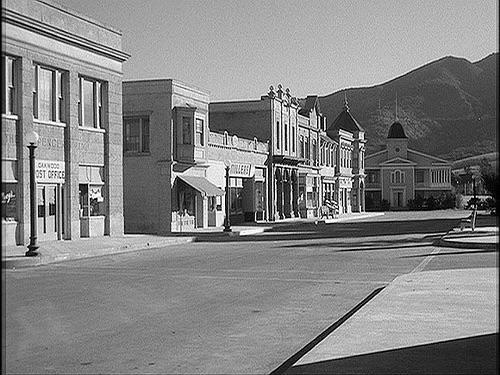
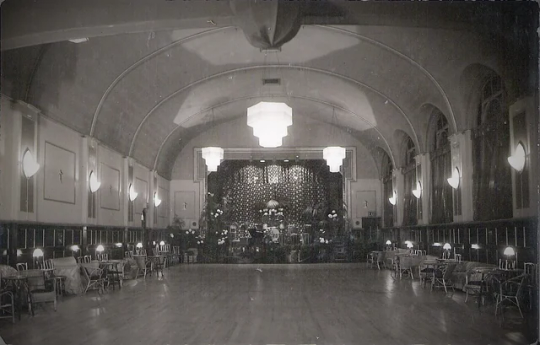

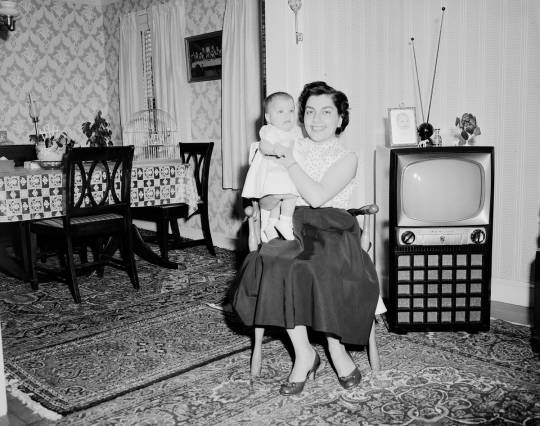
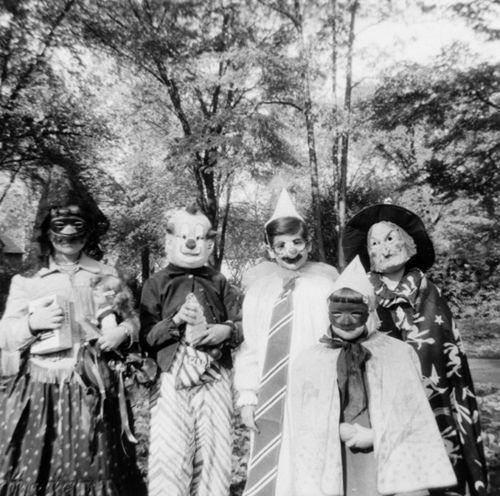
3.) The Enemy of My Enemy is My Friend, or How I Learned to Love Strahd, okay so this one is a lot less horror-y and falls much more under the comedic spooky category, just so yall know. Deep in the middle of Barovia, the ancient kingdom of Vampires, meets a council of Count Strahd von Zarovich's greatest commanders and lieutenants to hunt down Strahd's greatest enemy Rudolph van Richten and his party of heroes known as "The Grape-Smashers." Strahd's lieutenants have been gifted powers greater than any mere mortals, but are these gifts enough to stop Van Richten, or even enough to stop the personal ambitions of each other? Come find out in "How I Learned to Love Strahd."
Okay, as much as this may seem like a joke suggestion it cracks me up and I feel like it would be ill-advised of me to not at least mention it. In an era where "The Curse of Strahd," is well-overdone at this point, it's worth a take from an all evil "revenge story." Obviously this will be in Dungeons and Dragons 5th Edition, which, in my opinion, is really hard to use for horror, but this is a nice go-around. Come for the evil PCs, maybe a PvP battle or two, and a game of intrigue in the shadows of Barovia! All that and a buff Van Richten.
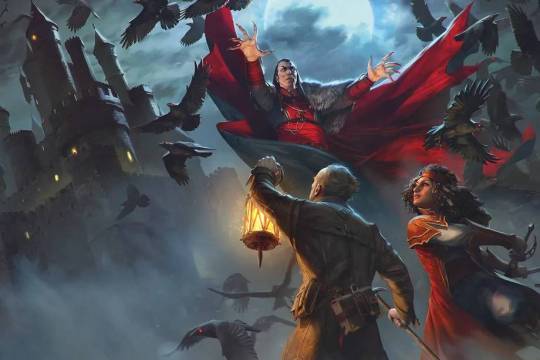
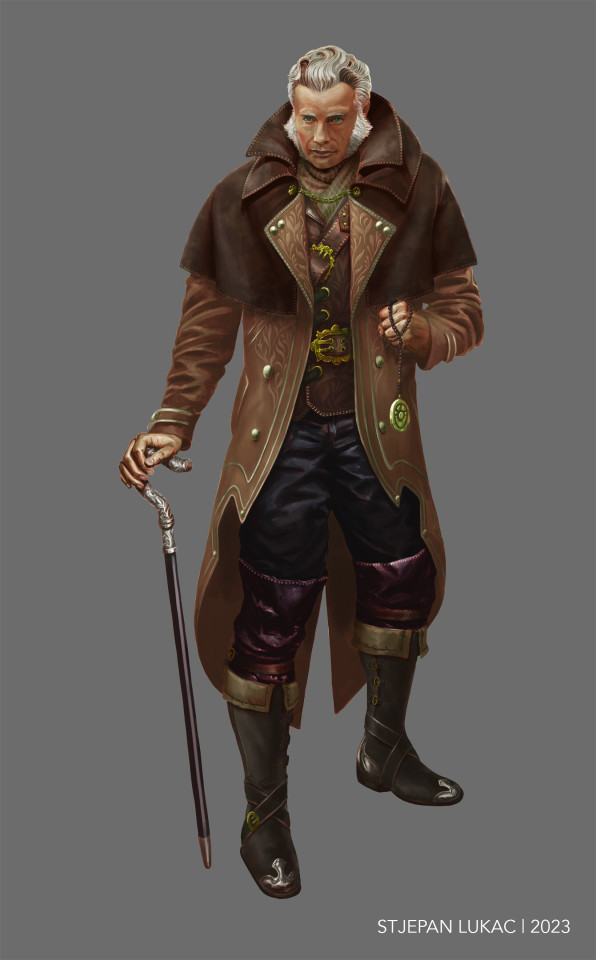
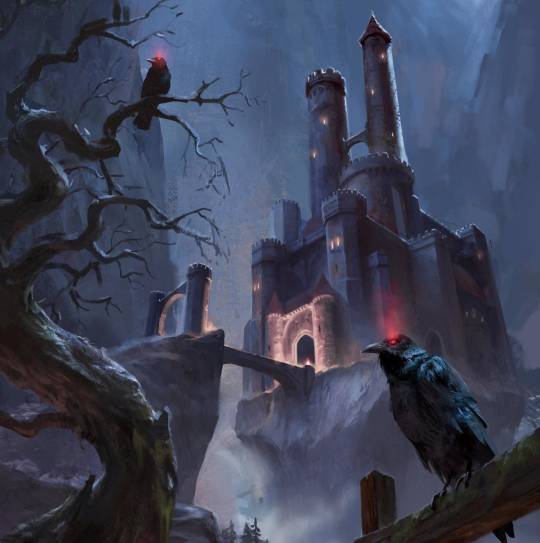
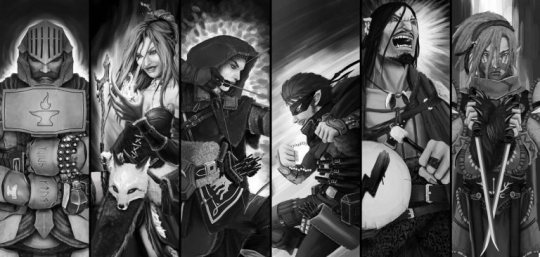
4.) Before Annapolis was ever called such it was known as Providence, a settlement of exiled Puritans in the Province of Maryland, but these early days were no easy set-up for the far-flung protestants... in the mid 1600s the English Civil War spilled out into their holdings across the waves as brother turned on brother, clan erasing clan, and something from the shores of the Old World would arrive in the New. When around every corner could be someone you've known your whole life, what's stopping them from hunting you in the depths of winter. All matters made worse when rumors of a witch begins circulating your small home.
Think "The VVitch" (2015) meets "A Field in England" (2013) meets Atun Shei's recent film "The Sudsbury Devil" (2023). It is the unexplored wilderness of early colonial Maryland, but the hateful warmongering that slowly builds that makes the horror and tension so clear. Unsure of what system we'll be using, but maybe the new Regency Cthulhu system.
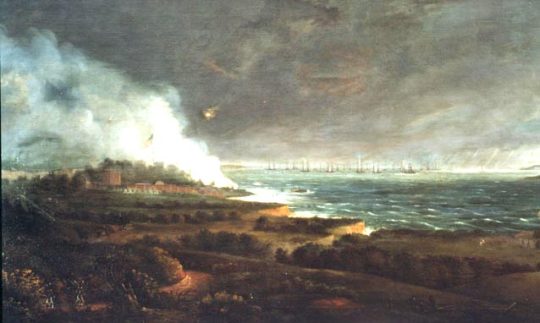
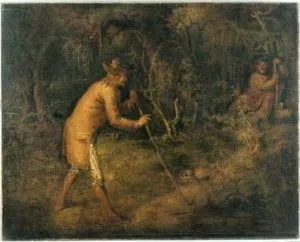
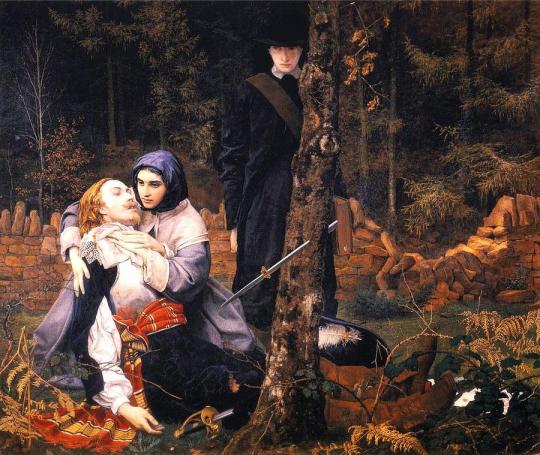
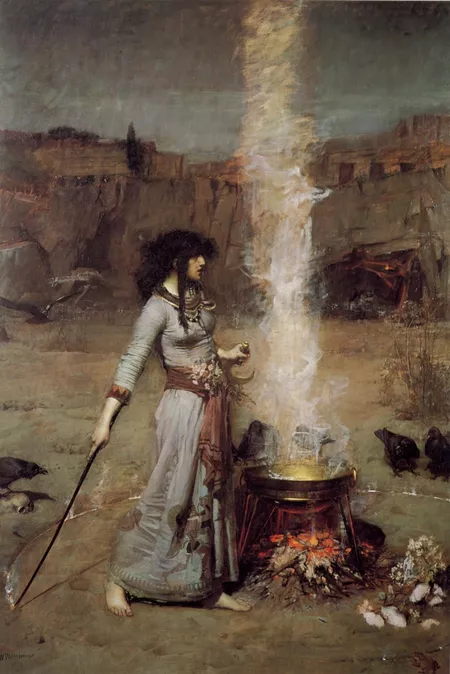
5.) The Great Baltimore Fire of 1904 destroyed some 140 Acres of Baltimore proper... and in it's rubble awakened something far worse. But you and your fellow survivors are just trying to get by in the aftermath of the fire... only for something to call out, whether some strange magicks or perhaps just a sickness... but sickness doesn't even linger like this... it doesn't call to you...
Some more local history, aspiring from the actual Fire of 1904 things quickly devolve from there as rumors of a cult begin to spread along the streets of Rosland Park... a mysterious illness leaving even more dead... and the death of an eclectic professor. Definitely using the Call of Cthulhu 7th Edition for this one.


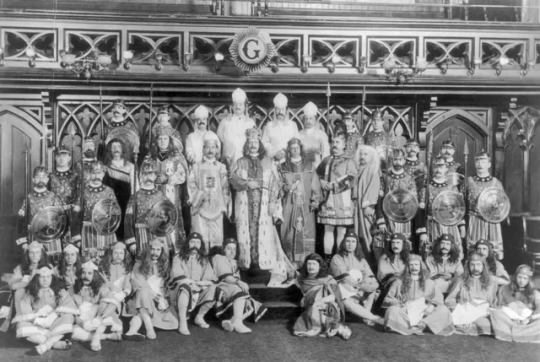

Aaaaaaaand that's it! Let me know what y'all think!
#dungeons and dragons#d&d teaser for my campaign#d&d#dnd#call of cthulhu#roleplay#rp#critical role#dimension 20#actual play#dnd liveplay#cosmic horror#horror#lovecraft#lovecrafian#campaign#dnd campaign#writers on tumblr#original story#writing#writer things#worldbuilding#maryland#baltimore#baltimore history#history#historic fiction#historic fantasy#baldur's gate 3#live play
43 notes
·
View notes
Text
"[Matilda of Boulogne's office as Queen of England], initiated and broadly defined by the coronation ordo, gave her royal power and authority to share in governance. Her obligations and activities were shaped by custom established by previous queens and the ad hoc needs of king and realm. [...] [Matilda's] thorough integration into the governance of the realm was not repeated in [Eleanor of Aquitaine’s] years as queen of England. Eleanor's coronation followed a new model that emphasized the queen as progenitor of royal heirs and subordinate to the king rather than as sharer of royal power. Though Eleanor acted as regent in England between 1156 and 1158 and in Poitou on several occasions from 1165 on, her writs suggest delegated rather than shared royal authority. In England, her power was limited by the lack of lands assigned to her use and by the elaboration of financial and judicial administration. Whereas [Matilda of Boulogne's] inheritance allowed her to play an integral role in politics by securing the Londoners' loyalty and a steady supply of mercenaries, Eleanor's inheritance provided her with more extensive power in Poitou and Aquitaine than in England. Until 1163, Eleanor withdrew funds from the Exchequer by her own writ, but unlike her Anglo-Norman predecessors, she was not a member of its council nor did she issue judgments from the royal court. Eleanor's counsel and diplomatic activities, in contrast to Matilda's, are rarely mentioned. She did, however, encourage the 1159 Toulouse campaign and supported Henry in the Becket affair and the coronation of young Henry. Eleanor was not a prominent curialis; she rarely witnessed Henry's charters or interceded to secure the king's mercy. She did follow in Matilda's footsteps in her promotion of her sons, cultivation of dynastic goals through the Fontevraudian tombs, and patronage that reflected her family's traditions. For Matilda, to be queen encompassed a variety of functions-curialis, diplomat, judge, intercessor, and "regent." Through a combination of factors, Eleanor's role as queen was much more restricted."
-Heather J. Tanner, "Queenship: Office, Custom or Ad Hoc", Eleanor of Aquitaine: Lord and Lady (Edited by Bonnie Wheeler and John Carmi Parsons)
#this is so interesting when it comes to the gradual evolution of queenship over the years (post-Norman to early modern)#eleanor of aquitaine#matilda of boulogne#queenship tag#historicwomendaily#english history#my post#don't reblog these tags but#the irony of the 'Eleanor of Aquitaine Exceptionalism' rhetoric is that not only is it untrue#but you could actually make a much more realistic argument in the opposite direction#We know that it was during Eleanor's time as queen of France that 'the queen's name was disappearing from royal documents' (Ralph Turner)#She did not enjoy an involvement in royal governance that her mother-in-law Adelaide of Maurienne enjoyed during her time as queen#As Facinger points out 'no sources support the historical view of Eleanor as bold precocious and responsible for Louis VII's behavior'#Even as Duchess of Aquitaine she played a secondary role to Louis who appointed his own officials to the Duchy#Only four out of her seventeen ‘Aquitanian’ charters seem to have been initiated by Eleanor herself#And now it seems that even Eleanor's role as queen of England was also more restricted than her predecessors#with new coronation model that was far more gendered and 'domestic' in nature#That's not to argue that it meant a reduction in the queen's importance but it does mean that the 'importance' took on a different form#There's also the fact that Eleanor's imprisonment and forced subjugation to Henry after the rebellion till the end of her life#was probably what set the precedent for her sons' 'Lord Rules All' approach with their own wives (Berengaria and Isabella)#as Gabrielle Storey has suggested#None of this is meant to downplay Eleanor's power or the impact of her actions across Europe - both of which were extensive and spectacular#But it does mean that the myth of her exceptionalism is not just incorrect but flat-out ridiculous
25 notes
·
View notes
Text
Also for the record, the whole White Witch-enchanted food thing still would have worked regardless of when the story was set. Kids like sweets, especially magic ones that symbolize temptation. The WW2 sugar rationing is not the pivotal element here
#the ww2 aspect of narnia is interesting flavor but like. it's not really essential#lots of books are inextricably linked to their historical contexts such that they can't be properly understood without them#i honestly don't think lww is one of them#the turn of the century setting of mn is far far more important to the story proper than ww2 is for lww#bc of the role it plays in genre and the influence of lewis's childhood on the story#the evacuation of london has one (1) essential story function: it gets the kids into a strange country house and away from their parents#you'll notice it gets dropped entirely in subsequent books#it's very interesting set dressing and definitely cool to play with#but narnia is not at its heart a ww2 story#if anything it's a ww1 story#narnia#idk why but I'm feeling very salty today
54 notes
·
View notes
Note
Okay, question for you- is Eloise’s hair tied at the end and curly, or in a ponytail and curly, or is there no tie and I’m just blind?
I was going to answer this quickly but I am EXTRA & had to do a write-up of her hair (sorry🙏)
First, she normally does wear her hair in a braid!💓 I do NOT know how to draw braids nor do I want to learn, so I do my weird way that looks terrible and I really should spend like 30 min researching😔🙏
When I remember, I like to add the bow but I forget a lot🥲



Her hair is CRAZY and thick, and has been the bane of her existence her whole life. I’m just channeling her inner Black (she is like a great-aunt or something of Sirius and Bellatrix) so OBVIOUSLY i had to give her amazing hair.
Since she is a Proper Young Victorian Lady™️ who spent the last 5 years at a muggle finishing school, she NEVER wears her hair down, and felt scandalized the first weeks at Hogwarts, seeing girls her age wearing TROUSERS😨 and having their hair DOWN😳 and although she’s used to it now, she still feels uncomfortable thinking of herself doing it.
Sebastian daydreams about it all the time though😇🙏


Some quick doodles I sketched up for this así.
1) her crazy hair when it’s down💓🫶
2) Imelda LOVES doing Eloise’s hair. She’s never really had girl friends before, and the ritual of gossiping/doing hair/hanging out reminds Imelda of her childhood bc her mom used to do her hair and tell stories🥹🥹 and Eloise has NEVER had friends before OR the experience with her own (awful) mother so she LOVES IT TOO💓💓💓 (Imelda teaches her Spanish some nights)
#I like giving Eloise different hairstyles tho and she’s fine with it🙏#she’s accepted her role as my historical fashion barbie#also my tip for drawing her hair is to just scribble random shadows and hope for the best (it’s what I do)#also as I was drawing up the picture with her hair down#I REALIZED WHO I PICTURE AS HER IRL🙏🙏#young Helena bonham Carter god she was such a CUTIE !!!!#and THEN I realized that it’s actually perfect bc she plays Bellatrix#but then I got sad remembering that Eloise probably eventually inherits the Black family madness😭😭😭😭#just like her mother just like Apollonia (her middle namesake) just like Bellatrix etc etc#maybe it skips her generation and I know I’m her creator so I can DO that#but idk!! I kind of like the thought of tragic ending too😫#hogwarts legacy#hogwarts legacy fanart#hphl#hogwarts legacy mc#hogwarts legacy oc#imelda reyes#Eloise babbit
35 notes
·
View notes
Text
just took a look at the aph greenland tag on ao3

#ill reserve the bulk of my complaints for another post#but anybody out there who plans on writing a fic about greenland being america and canadas relative and her/him playing a role in the two's#lives needs to get some new material and preferably one that actually makes historical sense#I been saying it since 2020!! stop making poc relevant only by their connections to white people!!! ESP INDIGENOUS PPL...#thoughts tm#hetalia#hws greenland#AND STOP MAKING GREENLAND A DEN/NOR BABY!!!!!!!!! I’LL [redacted] YOU!!!!!!!!!!!
72 notes
·
View notes
Text

From the travelog Dreams of Distant Places Vol 12
#low fantasy#conworld#worldbuilding#arkera#world building#a song of ice and fire#creative writing#conan#dark fantasy#dune#fantasy world#high fantasy#warhammer 40k#dungeons and dragons#role playing games#warhammer fantasy#sword & sorcery#game of thrones#dark souls#bloodborne#pulp fantasy#historic fantasy#weird fiction#cosmic horror#lord of the rings#world of darkness#dragon age#fullmetal alchemist#the dark tower#ai art
43 notes
·
View notes
Text

mosque of the companions in massawa, eritrea. it was reportedly built by companions of the prophet muhammad who fled to africa due to persecution they faced in mecca. it possibly dates to 620-630 ce, which would make it the oldest purpose-built mosque in the world. however, some of the current structure was most likely built in the late 7th-9th centuries, as the mihrab and minaret as we know them hadn't been developed at the time.
#eritrea#architecture#worship#muslim#nmenam#my posts#people really underestimate how big of a role east africa plays in abrahamic history#in islam east africa is sort of like how europe is in christianity#in christianity people in e africa particularly modern day ethiopia & eritrea were some of the first to adopt it#in judaism some of the first jews came here via yemen#like arabic hebrew syriac etc are also in the same bigger language family as ge’ez etc#there were a lot of historical relations#(not always friendly but that’s how it is everywhere else history is history etc)#especially between the horn & southern khaleej
73 notes
·
View notes
Note
hii! honeslty just curious, I read/watched kuroshitsuji AGES ago and I don't think I've finished the manga anyway, does grell go by she/her?? I vageuly remember ppl headcanonning them as enby though iirc in canon he's a guy?
Your tags peaked my curiosity, I haven't seen any Kuro content in a hot minute, but I remember it being the absolute must watch in my peak anime watching years lol And I absolutely loved the manga's artstyle
in canon grell is a trans woman, yana toboso has said something like "grell is a man with a woman's heart" ages ago and sometimes around 2014/16 had tweeted something about wanting to be more careful with her representation of people like grell in the future, don't quote me on that thought because i only read that tweet once and only remember reading a shitty screenshot of a translation of that interview where she allegedly said that.
i can however show you this:
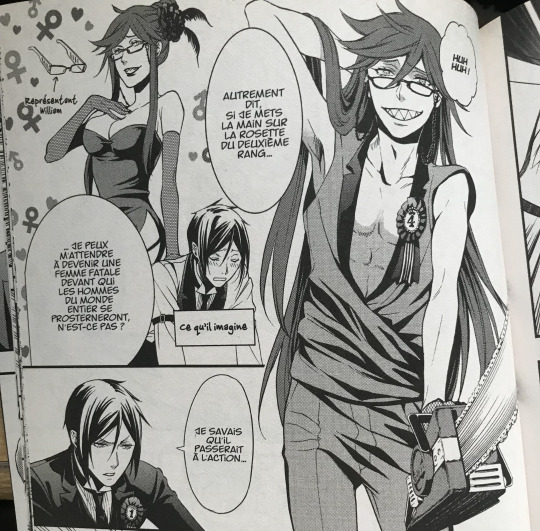
it's from a bonus chapter (after chapter 108) about the popularity polls (it's a very convoluted non canon chapter) but it's one of the most blatant example of her being trans.
there's also the way she constantly refers to herself as a "young maiden" ect. idk how it goes exactly in the og but in french they translated it so grell always refers to herself with feminine terms while everyone else misgender her including the narrator. she very consistently reaffirm herself as a woman through every single ones of her appearances, like it's a thing she very much does, every single time she's on screen.
i haven't watched the anime in forever (cause it's kind of a disgrace and insult to the manga lol) but if i remember properly (which i mostly likely don't) they did omit/lowkey censor some of grell explicitly going "i wish i had been born a woman/could have been able to carry children" when she first properly introduce herself as a shinigami & the other half of jack the killer. (the anime also really did lean a lot more into the pervert queer caricature whereas in the manga she's given a bit more dignity, especially the further the story goes. though that might be my own impression and maybe it didn't change that much i just love her a whole lot).
also because i have to, please forget the anime (the first two seasons that is) and read the manga first and foremost because oh boy, what a disaster the anime is (nostlagia and atmosphere wise it's entertaining, i really love the op & ed, but it just, i just cant man it doesn't even compare to the manga at all). only watch book of circus -> book of murder -> campania movie -> the new private school arc that's coming soon (idk what they called it) after reading the manga.
#undescribed#she's my problematic girlie and i love her so much. there's subtext too for her transness but that goes in spoilers territory. otherwise sh#'s been VERY blatantly trans since her introduction it baffles me ppl refuse to accept it (not noticing it is fine cause when i was a kid i#didnt really get it because i didnt know trans ppl where a thing but one day it all clicked into place yknow)#unrelated but it kills me that sebastian is only a transphobe because it's 'historically accurate/what a good butler of his position#should be' he only says that because 1 he's a bitch 2 he doesn't like grell 3 he gets a kick out of playing the good butler role#i hate/love his stupid fucking ass i need to punch him so bad. he's so annoyingly funny i can't stand him. he's just awful and having a#grand time what an ass. back to queer ppl there are other in the story like nina hopkins being a lesbian (HEAVELY implied) and doll's whole#thing. it's one of my favorite manga ppl should give it a try just dont look at the anime pretend it's not there pls
26 notes
·
View notes
Text
i think if doctor who cast a member of the six idiots as either the doctor or a historical companion i would simply never want or need anything else ever again like my life would be complete
#fr though think about the implications (i do. on the daily. literally all the time)#they’re all so good at both comedy and emotional moments as well as playing convincing people from different eras#also matthew baynton doctor…. kicking my legs like a schoolgirl he is so fucking perfect for the role….#i imagine him playing a doctor quite like eleven really i think he would play that so so well#and i like the idea of having a companion like debbie from yonderland#or preferably like i said a historical companion#from pretty much any era really they’re good at everything#put doctor who in the hands of larry and ben i dare you#it would be the best thing on the fucking planet no joke#doctor who#dr who#six idiots#horrible histories#bbc ghosts#yonderland#matthew baynton
96 notes
·
View notes
Text
*That day*
**Based on This **
Caroline:
-So let me get this straight this guy is claiming to be Mr Hamilton?
Arthur:
-Yep
**Caroline and Arthur looking down at H.A, Alex(Historical Accurate Alex) who is tied up in Caroline’s basement**
( @ask-chubby-hamilton as H.A Alex )
#umi teardrop#hamilton#hamilton musical#hamilton rp#ask blog#caroline jefferson madison#asks open#send asks#arthur hamilton laurens#alexander hamilton#Historical Accurate Alexander Hamilton#H.A Alex#rp#role play
8 notes
·
View notes